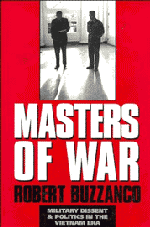Book contents
- Frontmatter
- Contents
- Acknowledgments
- List of Abbreviations
- 1 Introduction: Losing Battles and Winning Wars
- 2 Prologue to Tragedy: U.S. Military Opposition to Intervention in Vietnam, 1950–1954
- 3 Preparing for and Avoiding War: Military Affairs and Politics in Vietnam and the United States, 1955–1960
- 4 Pinning Down the President: JFK, the Military, and Political Maneuvering over Vietnam, January-October 1961
- 5 The Best and Worst of Times: The U.S. War against Vietnam, October 1961–November 1963
- 6 “Seeing Things Through in Vietnam”: LBJ, the Military, and the Growing U.S. Commitment to Vietnam, November 1963-December 1964
- 7 Hope for the Best, Expect the Worst: U.S. Ground Troops Enter the Vietnam War, January-July 1965
- 8 War on Three Fronts: U.S. Forces versus the Viet Cong, Westmoreland versus the Marines, and Military Leaders versus the White House, July 1965-December 1966
- 9 “The Platform of False Prophets Is Crowded”: Public Hope and Private Despair in Vietnam, 1967
- 10 The Myth of Tet: Military Failure and the Politics of War
- 11 Conclusion: Bringing It All Back Home
- Epilogue: “This Is a Real War”: Military Dissent and Politics after Vietnam
- Bibliography
- Index
7 - Hope for the Best, Expect the Worst: U.S. Ground Troops Enter the Vietnam War, January-July 1965
Published online by Cambridge University Press: 05 August 2012
- Frontmatter
- Contents
- Acknowledgments
- List of Abbreviations
- 1 Introduction: Losing Battles and Winning Wars
- 2 Prologue to Tragedy: U.S. Military Opposition to Intervention in Vietnam, 1950–1954
- 3 Preparing for and Avoiding War: Military Affairs and Politics in Vietnam and the United States, 1955–1960
- 4 Pinning Down the President: JFK, the Military, and Political Maneuvering over Vietnam, January-October 1961
- 5 The Best and Worst of Times: The U.S. War against Vietnam, October 1961–November 1963
- 6 “Seeing Things Through in Vietnam”: LBJ, the Military, and the Growing U.S. Commitment to Vietnam, November 1963-December 1964
- 7 Hope for the Best, Expect the Worst: U.S. Ground Troops Enter the Vietnam War, January-July 1965
- 8 War on Three Fronts: U.S. Forces versus the Viet Cong, Westmoreland versus the Marines, and Military Leaders versus the White House, July 1965-December 1966
- 9 “The Platform of False Prophets Is Crowded”: Public Hope and Private Despair in Vietnam, 1967
- 10 The Myth of Tet: Military Failure and the Politics of War
- 11 Conclusion: Bringing It All Back Home
- Epilogue: “This Is a Real War”: Military Dissent and Politics after Vietnam
- Bibliography
- Index
Summary
In order for the [U.S. government] to evaluate [Westmoreland's] requests properly when submitted, a policy determination must be made in the near future that will assure the question: What should the Vietnamese be expected to do for themselves and how much more must the U.S. contribute directly to the security of South Vietnam?
Harold K. JohnsonAs political and military conditions in the RVN deteriorated throughout 1964, it became manifestly clear to the White House that the United States would have to increase significantly its presence in Vietnam to stave off defeat. With U.S. credibility at stake and his own political fortunes attached to the outcome of the war, the president never wavered from his commitment to Vietnam, notwithstanding the ample evidence of decay there. Thus Johnson, McNamara, and McGeorge Bundy, among others, took crucial steps in early 1965, such as intensifying the air war, deploying ground troops, and authorizing offensive operations against the VC. By midyear the United States was well on its way toward taking over the war.
At the same time, military critics and politicos were divided over U.S. policy and prospects in Indochina. Maxwell Taylor and Westmoreland initially pointed out the risks of greater intervention and urged that the United States maintain its support role, but not engage in combat. Within two months, however, Westmoreland, sensing that defeat was imminent and recognizing the political realities of escalation, would request combat forces and assign them an offensive mission.
- Type
- Chapter
- Information
- Masters of WarMilitary Dissent and Politics in the Vietnam Era, pp. 187 - 228Publisher: Cambridge University PressPrint publication year: 1996



